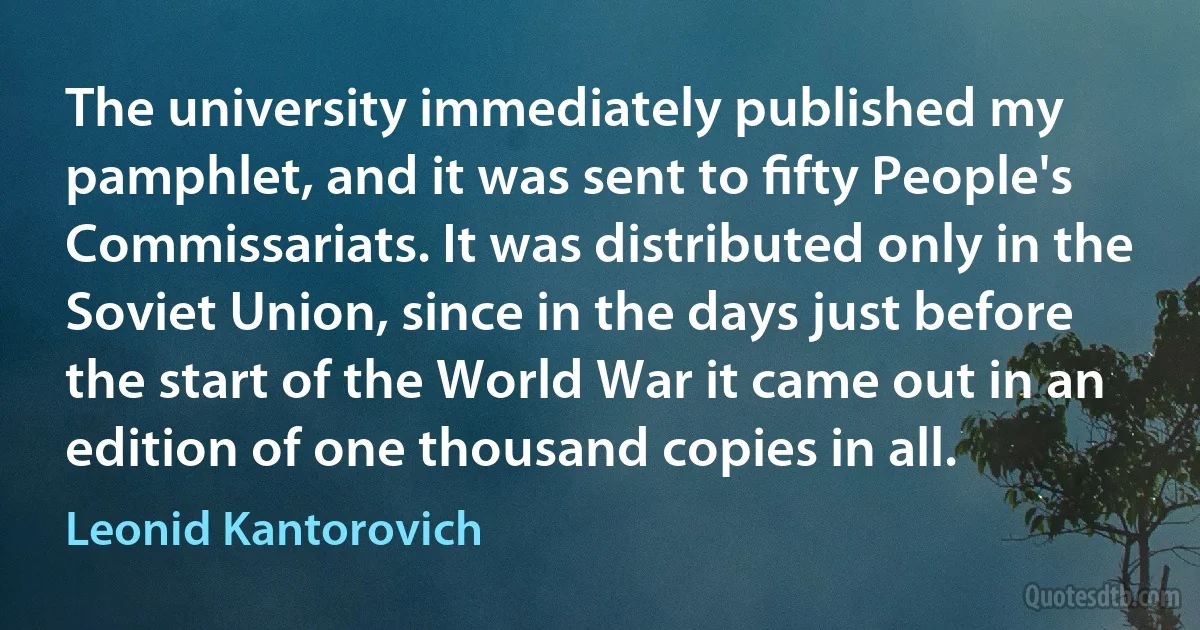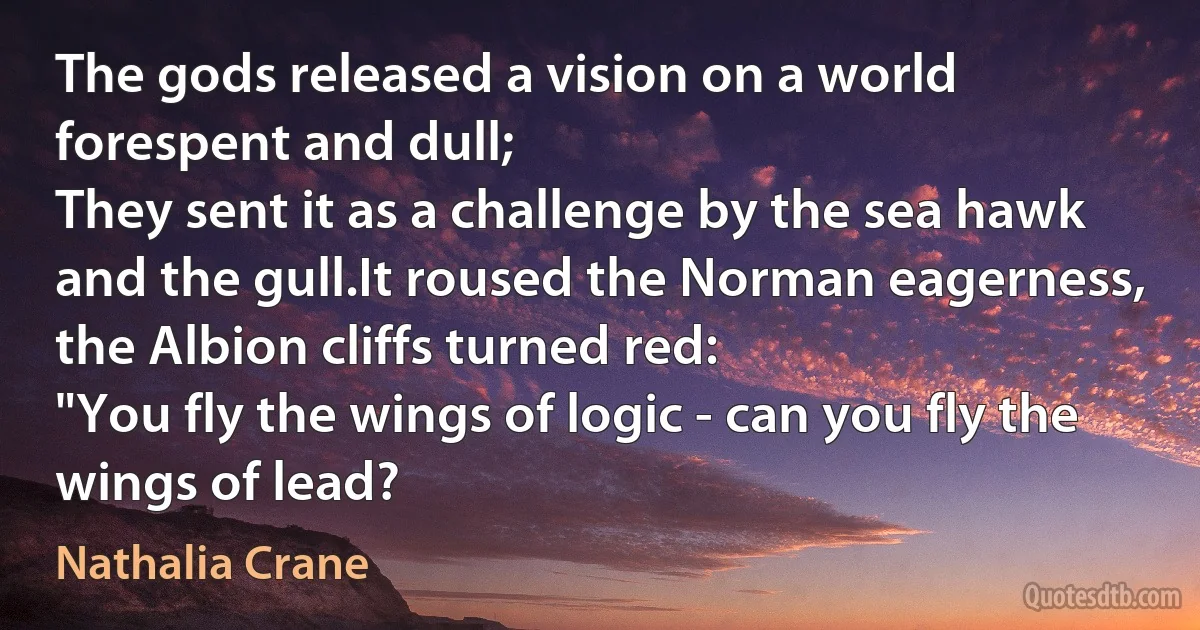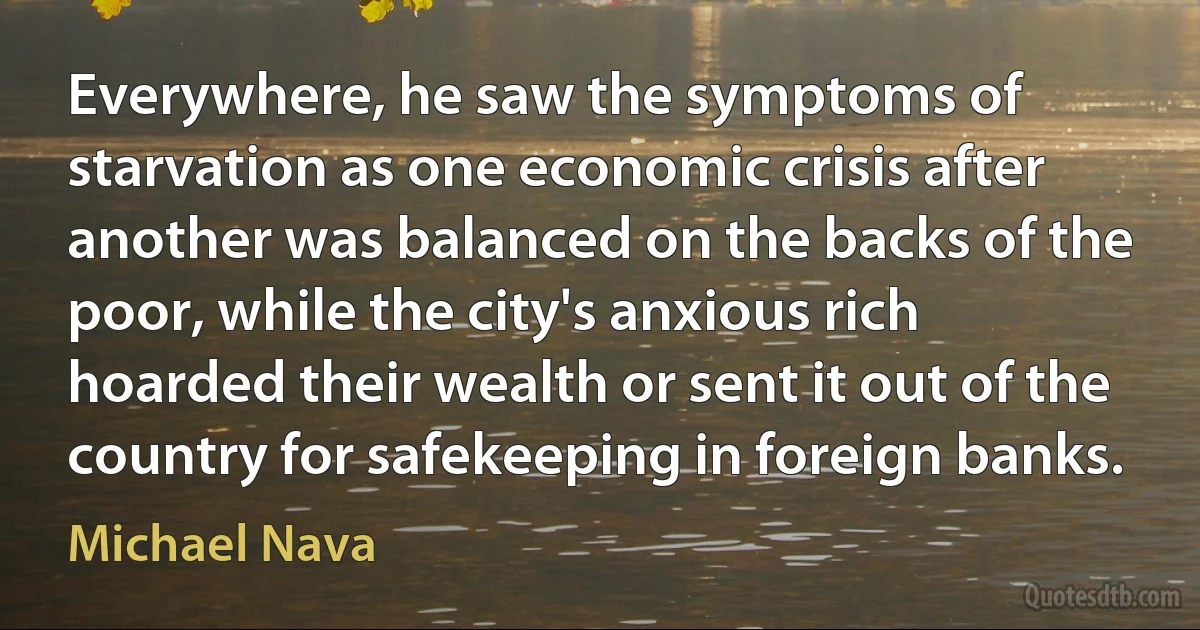Sent Quotes - page 44
Much has been said of the universal desire for peace, which is the desire of all peoples and, therefore, the desire of our people too, but the peace which the world wishes to preserve is the peace that we Cuban have been missing for quite some time.... Are we, the Cuban delegates, the representatives of the worst type of Government in the world? Do we, the representatives of the Cuban delegation, deserve the maltreatment we have received? And why our delegation? Cuba has sent many delegations to the United Nations, and yet it was we who were singled out for such exceptional measures: confinement to the Island of Manhattan; notice to all hotels not to rent rooms to us, hostility and, under the pretense of security, isolation.

Fidel Castro
The size of our hips, our style, our swag, it becomes co-opted but then we are demonised... My advice to young women is that you have to start by getting those demons out of your head. The questions I ask myself - "am I good enough?" - that haunts us, because the messages that are sent from the time we are little is: maybe you are not, don't reach too high, don't talk too loud.

Michelle Obama
Thereupon grasped the Tribune, to his belt well knotted,
His great buffalo horn, long, and twisty, and spotted
As the snake boa; two-handed to his lips he pressed it,
Blew his cheeks out like pumpkins, eyes with blood congested,
Half slid down his two eyelids, drew in half his belly,
And to his lungs he sent off all his spirit swelling...
(...)
Now the Tribune paused holding the horn; in the glade
It seemed to all he played still: but now echo played.

Pan Tadeusz
The bestselling poet of 1968 was Rod McKuen, who penned rhythmic little bon mots that he read in a raspy voice suggestive either of emotion or bronchitis. A Hollywood songwriter, clean-shaven with V-neck sweaters, McKuen was a long way from the beats. But by early 1968 he had already sold 250,000 volumes of his unabashedly sentimental verse. His two books, Stanyan Street and Other Sorrows and Listen to the Warm, were selling more than any book on The New York Times fiction bestseller list, although they were not listed, because poetry was not included on bestseller lists. With characteristic self-effacing candor, he said in a 1968 interview, "I'm not a poet; I'm a stringer of words.” When he came down with hepatitis, fans by the hundreds sent him stuffed animals. To many, he and his fans seemed unbearable.

Rod McKuen
But when Vasco da Gama arrived in Cochin on November 1 1498, the Syrian Christians rallied round him in warm welcome. Some time earlier, Vasco da Gama had bombarded Calicut when the Samudrin (Zamorin) ruler of that place refused to be dictated by him. He had plundered the ships bringing rice to the city and cut off the ears, noses and hands of the crews. The Zamorin had sent to him a Brahmin envoy after securing Portuguese safe conduct. Vasco da Gama had cut off the nose, ears and hands of the Brahmin and strung them round his neck together with a palm-leaf on which a message was conveyed to the Indian king that he could cook and eat a curry made from his envoy's limbs. (53)

Sita Ram Goel
Don't you think something is fishy when the presstitutes orchestrate a fake news "humanitarian crisis” in Venezuela, but totally ignore the real humanitarian crises in Yemen and Gaza? Don't you think something is really very rotten when the expert, Alfred Maurice de Zayas, sent by the UN to Venezuela to evaluate the situation finds no interest by any Western media or any Western government in his report? Don't you think it is a bit much for Washington to steal $21 billion of Venezuela's money, impose sanctions in an effort to destabilize the country and to drive the Venezuelan government to its knees, blame Venezuelan socialism (essentially nationalization of the oil company) for bringing "starvation to the people"... As the United States is completely devoid of any print or TV media, it falls upon internet media such as this website to perform the missing function of honest journalism.

Alfred de Zayas
If you want to talk about tragedies, how about this one? We bombed what we thought was a Serb police station in Kosovo... we found that there were Serb police vehicles parked there at night, so we sent an F-16 in, dropped two 500-pound laser-guided bombs and took it out. We killed 80 Albanians who had been imprisoned by the Serbs there. They were trying to escape, and the Serbs locked them up in this farmhouse... So, I regret every single innocent person who died, and I prayed every night that there wouldn't be any innocent people who died. But this is why I say you must use force only as a last resort.

Wesley Clark
Between 1890 and about 1970, northerners found it less embarrassing to let Dixie tell the story of the cause it lost than to reminisce about the cause they had abandoned. The Civil War had been about something other than states' rights after all. It began as a war to force or prevent the breakup of the United States. As it ground on it became a struggle to end slavery. At Gettysburg in the fall of 1863, Abraham Lincoln was already proclaiming 'a new birth of freedom', black freedom. Conversely, on their way to and from Gettysburg, Lee's troops seized scores of free black people in Maryland and Pennsylvania and sent them south into slavery. This was in keeping with Confederate national policy, which virtually re-enslaved free people of color into work gangs on earthworks throughout the south.

James W. Loewen
1,930 years ago a Roman general sent to put down a Jewish revolt in Palestine remarked that it was strange, since Jews wrote the laws of Rome... More recently, the Prime Minister in Israel was assassinated by another Jew. In both cases we are looking at a struggle within the ranks of Jewry, to be exact, a split between religious Jews who take literally the mythological absurdities of the Old Testament, and practical-minded, secular, so-called Jews who rule the world from behind the scenes. The secular Jews have always known that a political state, such as the country called Israel, with Jewish only citizenship, causes problems for their universalist-minded puppets and their Masonic-orchestrated New World Order. Slick Willie was squeezed between two warring Jewish factions.

David Lane (white nationalist)
How can it be that one who hath nothing, neither raiment, nor house, nor home, nor bodily tendance, nor servant, nor city, should live tranquil and contented? Behold God hath sent you a man to show you in act and deed that it may be so. Behold me! I have neither city nor house nor possessions nor servants: the ground is my couch; I have no wife, no children, no shelter-nothing but earth and sky, and one poor cloak. And what lack I yet? am I not untouched by sorrow, by fear? am I not free? ...when have I laid anything to the charge of God or Man? when have I accused any? hath any of you seen me with a sorrowful countenance? And in what wise treat I those to whom you stand in fear and awe? Is it not as slaves? Who when he seeth me doth not think that he beholdeth his Master and his King? (114).

Epictetus
Conduct, practice, is the proof of doctrine, theory. "If any man will do His will - the will of Him that sent me," said Jesus, "he shall know of the doctrine, whether it be of God or whether I speak of myself" (John vii. 17); and there is a well known saying of Pascal: "Begin by taking holy water and you will end by becoming a believer." And pursuing a similar train of thought, Johann Jakob Moser, the pietist, was of the opinion that no atheist or naturalist had the right to regard the Christian religion as void of truth so long as he had not put it to the proof by keeping its precepts and commandments (Ritschl, Geschichte des Pietismus, book viii., 43).

Miguel de Unamuno
The Rhine is to-day a barrier indispensable to the safety of Western Europe-indispensable, therefore, to civilization. ... By renouncing the Rhine as a natural barrier, we should be conniving at an inconceivable, a monstrous situation. Germany would be able to continue her enterprises as though she had been victorious-the very Germany that has sent millions of human beings to death, the very Germany that planned to annihilate our country and leave her a heap of ashes, the very Germany that plotted to dominate the world by brute force-blood-stained, crime-stained Germany.

Ferdinand Foch
In 1626 Bacon succumbed to the results of his ill timed experiment in preserving chickens with snow... The Bacon manuscripts were sent to [Sir William] Boswell's residence at the Hague, and there lay until Boswell, who died in 1647, confided them to the editorial care of Isaac Gruter who... published them all together in 1653. Among the papers which thus came into his hands, Gruter found the two manuscripts of William Gilbert, of Colchester, which William Gilbert, of Melford, had prepared, and these he edited and issued... in 1651.

William Gilbert (astronomer)
I may become a poor man; I shall then be one among many. I may be exiled; I shall then regard myself as born in the place to which I shall be sent. They may put me in chains. What then? Am I free from bonds now? Behold this clogging burden of a body, to which nature has fettered me! "I shall die,” you say; you mean to say "I shall cease to run the risk of sickness; I shall cease to run the risk of imprisonment; I shall cease to run the risk of death.”.

Seneca
When I was a young man, growing up in New York City, I refused to pledge allegiance to the flag. Of course I was sent to the principal's office and he asked me: "Why don't you want to pledge allegiance? Everybody does." I said: "Everybody once believed the Earth was flat but, that doesn't make it so." I explained that America owed everything it has to other cultures and other nations, and that I would rather pledge allegiance to the Earth and everyone on it. Needless to say, it wasn't long before I left school entirely. I set up a lab in my bedroom. There, I began to learn about science and nature. I realized then that the universe is governed by laws, and that the human being, along with society itself, was not exempt from these laws. Then came the crash of 1929, which began with what we now call "The Great Depression." I found it difficult to understand why millions were out of work, homeless, starving, while all the factories were sitting there, the resources were unchanged.

Jacque Fresco
When these children are four years old, they shall be sent to the country workhouse and there taught to read two hours a day and kept fully employed the rest of their time in any of the manufactures of the house which best suits their age, strength and capacity. If it be objected that at these early years, they cannot be made useful, I reply that at four years of age there are sturdy employments in which children can earn their living; but besides, there is considerable use in their being, somehow or other, constantly employed at least twelve hours in a day, whether they earn a living or not; for by these means, we hope that the rising generation will be so habituated to constant employment that it would at length prove agreeable and entertaining to them...

William Temple



